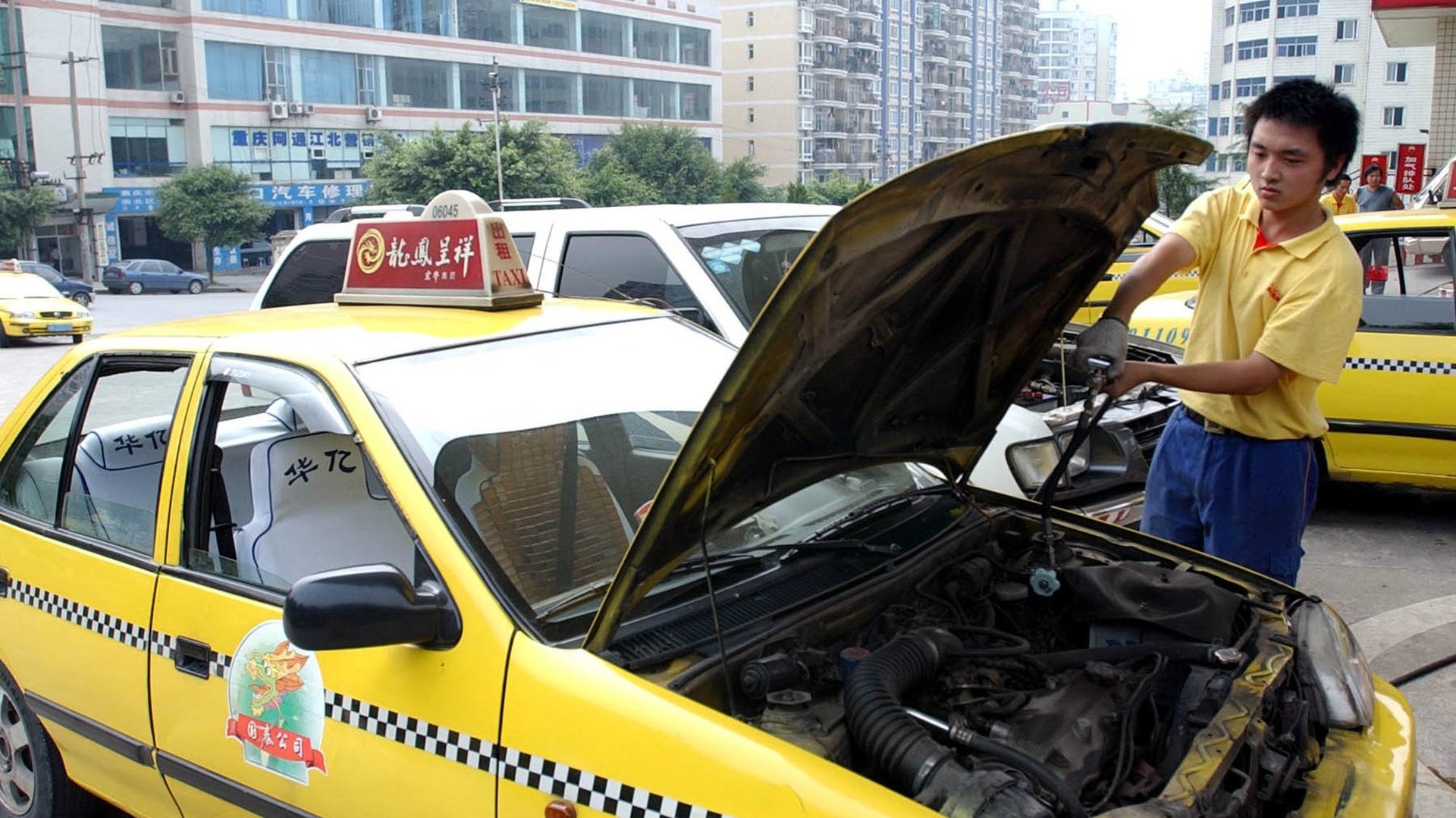China’s top ride-hailing startup wants $1.5 billion to take on Uber
The ride-hailing wars in China are quickly entering a second phase of price competition and government backlash.


The ride-hailing wars in China are quickly entering a second phase of price competition and government backlash.
Didi Kuaidi, a ride-hailing company with a presence in over 300 cities, is looking raise $1.5 billion in funding according to Bloomberg.
News of the fundraising comes just three days after Uber released an internal letter from CEO Travis Kalanick reporting that Uber would seek an additional $1 billion just for China. After launching in China in February 2014, the company is active in nine cities nationwide and claims to log more than 1 million rides daily—roughly equal to all its other markets combined.
The dual rounds will likely set the stage for a fierce battle for market share, in the form of discounts for passengers and trip bonuses for drivers.
China’s ride-hailing wars were once thought to be over. After rival taxi-hailing apps Didi Dache and Kuaidi Dache each launched in late 2012, they quickly spread across the country. As they grew in popularity, Didi got funded from social giant Tencent, while Alibaba backed hometown horse Kuaidi.
A cash-burning race broke out, with the firms competing for drivers and passengers via generous discounts and bonuses. At the frenzy’s peak, Didi was estimated to have spent $225 million on ride subsidies. The reckless spending ultimately led the two firms to merge into a single entity, set to control over 90 percent of the market and valued at an estimated $6 billion.
That begs the question: Why does a supposed billion-dollar monopoly need another billion dollars?
Didi Dache and Kuaidi Dache earned their ubiquity by partnering almost exclusively with licensed taxi operators. This strategy guarantees less scrutiny from bureaucrats, who fear that ride-hailing companies will upset the taxi industry. But a scarcity of taxis in Chinese cities means that even with many of them using Didi Kuaidi, securing a ride can still take a while—in the case of Beijing, about 20 minutes. The company also can’t do much to alleviate common complaints about taxi service, including rude drivers and cigarette odors. (Quartz reached out to Didi Kuaidi and received no immediate comment.)
Uber’s peer-to-peer service, in contrast, draws from a pool of drivers unaffiliated with taxis, so it’s supply of chauffeurs can grow large enough to satisfy demand. As in other markets, the company’s five-star rating system helps ensure a high service quality.
Both of these factors have helped Uber survive despite the competition. Within the past two months, Didi Kuaidi has rolled out two ridesharing services modeled after The People’s Uber. This suggests that its earlier merger might have resulted in little benefit save for brand visibility.
A challenge for both firms is convincing Chinese authorities they can serve society rather than harm it. China has seen protests both for and against Uber, and passengers of both services have been subject to violence by drivers.
Meanwhile billions of dollars in new funding will likely ignite a price war that’s great for most consumers, but sure to be a headache for the government.